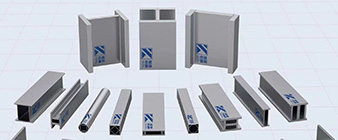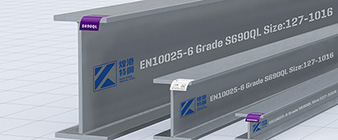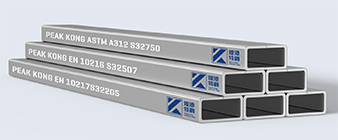Titanium Grade 1 (Ti Gr 1 / 3.7025) is increasingly recognized for its use in nuclear power plants due to its unique properties. Here is an overview of its applications in this critical area:
Cooling system
– Heat exchanger: Titanium Grade 1 is used in the heat exchanger because of its excellent corrosion resistance in high temperatures and corrosive environments, which is essential for cooling the reactor core.
– Piping systems: Piping systems used to transport coolant, where resistance to corrosion and erosion is crucial.
Containment structure
– Structural supports: Structural profiles used in containment buildings and other critical support structures to ensure stability and safety in extreme conditions.
– Reinforcement elements: used as reinforcement of concrete structures to increase durability and earthquake resistance.
Fuel treatment system
– Fuel Storage Racks: Titanium Grade 1 profiles are used in storage racks for nuclear fuel assemblies, providing strength and resistance to radiation damage.
– Transport containers: Containers suitable for transporting nuclear fuel, where lightweight and strong materials are essential for safety and efficiency.
Radiation Shielding – Shielded construction: used for structural components that require radiation shielding, benefiting from titanium’s ability to withstand harsh environments while providing the necessary protection.
Instrumentation and control systems
– Support frame: Structural frame for sensor and control systems where stability and resistance to environmental factors are crucial for accurate monitoring.
– Reprocessing facilities: Structural profiles used for processing nuclear material reprocessing facilities.
1. Corrosion resistance: Excellent resistance to corrosion by coolants and other corrosive chemicals in nuclear environments.
2. High strength-to-weight ratio: Significant weight reduction is possible, which is beneficial to structural design, especially in areas with strict weight restrictions.
3. Low thermal expansion: Minimal thermal expansion reduces the risk of structural deformation under different temperature conditions.
4. Radiation resistance: It can still maintain its mechanical properties and integrity under radiation exposure, and is suitable for long-term use in nuclear facilities.
5. Biocompatibility: Although not directly related to nuclear applications, its biocompatibility is advantageous in any potential interaction with biological systems.
– Cost: The higher material cost of titanium compared to traditional materials such as steel can be a limiting factor.
– Manufacturing challenges: Requires specialized cutting and welding techniques, skilled labor and advanced equipment.
Peak Kong Special Steel Co., Limited. provides structural profiles such as I-beams, H-beams, channel steels, angle steels, square tubes, flat tubes, and round tubes.
If you need more specific information or examples, please feel free to ask Peak Kong Special Steel!
-
 2024-9-15 Weathering steel H-shaped steel
2024-9-15 Weathering steel H-shaped steel -
 2024-7-18 S690 Steel Structure Application Introduction
2024-7-18 S690 Steel Structure Application Introduction -
 2024-9-29 Alloy 617 (N06617 / 2.4663) Hollow Structural Profiles
2024-9-29 Alloy 617 (N06617 / 2.4663) Hollow Structural Profiles -
 2024-9-21 S690 Universal beams to Universal columns
2024-9-21 S690 Universal beams to Universal columns -
 2024-7-12 Innovative applications of S960 Steel in Construction
2024-7-12 Innovative applications of S960 Steel in Construction -
 2024-9-19 1.4462 stainless steel structural hollow Sections
2024-9-19 1.4462 stainless steel structural hollow Sections -
 2024-4-15 Duplex Stainless Steel – A Simple Guide
2024-4-15 Duplex Stainless Steel – A Simple Guide



